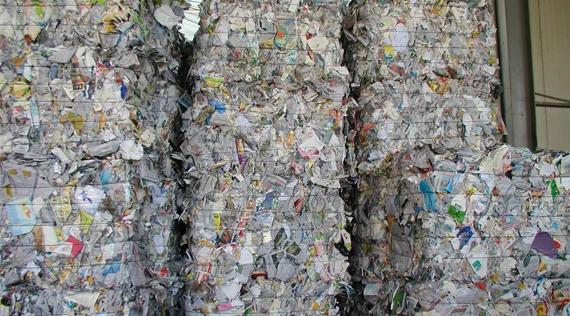
SEATTLE (Scrap Monster): The recently held Bureau of International Recycling (BIR) Convention in New Delhi has painted the grim picture of the possible impacts of Chinese import restrictions on global plastics recycling industry. The restrictions by China may cause immense worries on plastics recycling industry around the world which is known for its excessive dependence on China. The participants predicted huge fall in plastic scrap imports by China during next year.
According to Surendra Borad Patawari of Gemini Corporation, the imports of plastic scrap are likely to nosedive next year. Incidentally, China and Hong Kong together had accounted for 10.2 million tons of plastic scrap imports in 2016. As per estimates, the new regulations could lead to a fall of around 30-40% in imports of plastic scrap by China from its normal levels. This could translate to elimination of around 6-7 million tons of plastic scrap which was normally transported to China. The overseas suppliers may be forced to find new markets for the above volume of plastic scrap that are likely to be rejected by China.
Meantime, the new import policy by China is expected to provide big boost to its domestic recycling rate which currently stands at 22%. Further, it may lead to higher prices for domestically procured plastic scrap. The domestic price of plastic scrap has surged by nearly 30% over the past few months on the back of acute shortage of materials. Meantime, officials from China Scrap Plastics Association (CSPA) have confirmed that scrap import licenses would be issued only for those processing facilities that conform to the new environmental regulations.
Sources indicate that the tough Chinese regulations have led to closure of many scrap processing facilities within the country. Also, companies have started transferring their scrap processing facilities from China to other neighboring countries such as Taiwan, Indonesia, Malaysia and Vietnam where environmental regulations are not that strict. Also, major scrap suppliers have started looking out for new markets for their products.
The impacts of the proposed ban are widespread as China happens to be the dominant market for scrap plastics. According to estimates, nearly 87% of the scrap plastics from the EU region are exported to China. Also, the scrap plastics export from the US to China had totaled 1.42 million tonnes in 2016.
In the aftermath of Beijing’s ban, some recycling facilities in the US have stopped accepting materials such as mixed paper and plastics. For time being, these materials are being landfilled.
| Copper Scrap View All | |
| Alternator | 0.31 (0) |
| #1 Copper Bare Bright | 3.69 (0.04) |
| Aluminum Scrap View All | |
| 356 Aluminum Wheels (Clean) | 0.71 (0) |
| 6061 Extrusions | 0.62 (0) |
| Steel Scrap View All | |
| #1 Bundle | 475.00 (0) |
| #1 Busheling | 495.00 (0) |
| Electronics Scrap View All | |